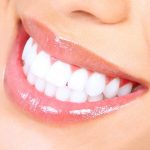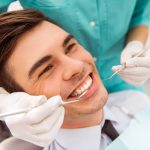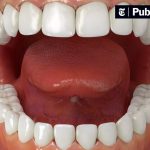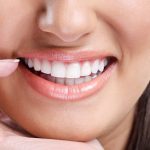When Can You Chew? A Guide to Eating After Wisdom Teeth Removal
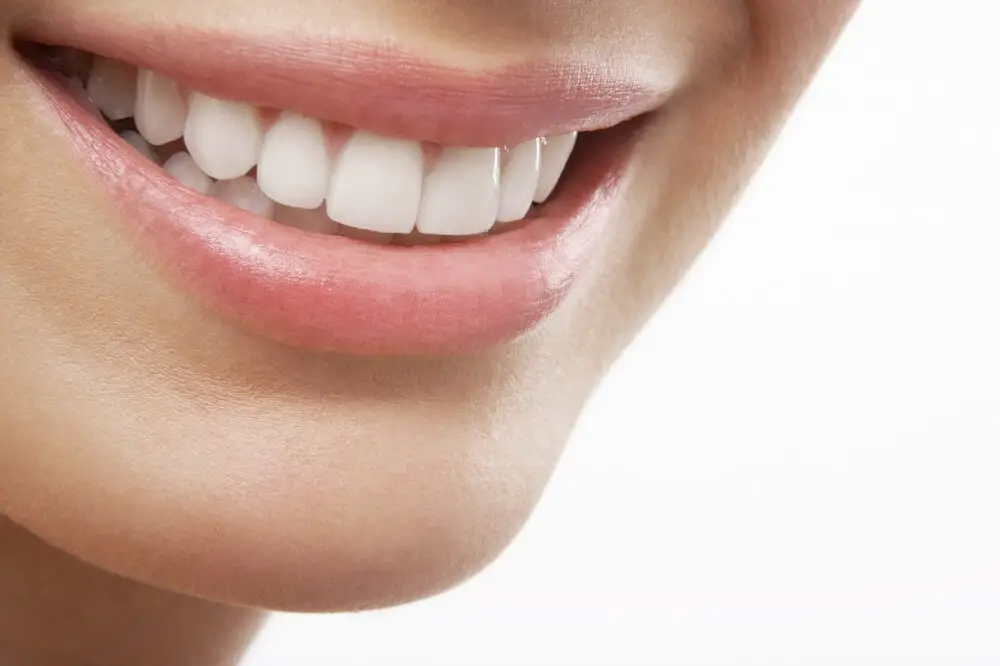
Wisdom teeth can be a real pain to deal with, both figuratively and literally. These molars, which usually emerge in early adulthood, can cause all sorts of problems, from overcrowding to infection. As a result, many people opt to have them removed altogether. While the surgery itself is relatively straightforward, the recovery process can be a bit more complicated, especially when it comes to eating. After all, you don’t want to end up damaging the delicate surgical site or prolonging the healing process. So, when can you chew, and what should you eat in the meantime? In this guide, we’ll explore everything you need to know about eating after wisdom teeth removal. First and foremost, it’s important to recognize that every person’s recovery process will be different. Some people may experience minimal discomfort and be able to resume their normal eating habits relatively quickly, while others may need to stick to a liquid or soft food diet for several days or even weeks. The key is to listen to your body and follow your dentist or oral surgeon’s instructions closely. With that said, there are a few general guidelines that can help you navigate the post-surgery diet and ensure a speedy recovery. In the following sections, we’ll cover topics such as when to start eating, what foods to avoid, and how to gradually reintroduce solid foods into your diet. So, grab a spoonful of pudding (or whatever soft food you have on hand) and let’s dive in!
Wisdom teeth removal is a common dental procedure that involves the extraction of the third molars located at the back of the mouth. These teeth often cause problems due to their size and position, leading to pain, infection, and damage to neighboring teeth. The recovery process typically involves a few days of discomfort, swelling, and bleeding, which can be managed with pain medication, ice packs, and rest. Patients are advised to avoid solid foods, hot liquids, and smoking for several days after the procedure to prevent complications and promote healing. Soft foods, such as yogurt, mashed potatoes, and soup, are recommended during this time, and patients should gradually reintroduce solid foods as their mouth heals. Proper care and following the dentist’s instructions can help ensure a smooth recovery and prevent any complications.
The First Few Days
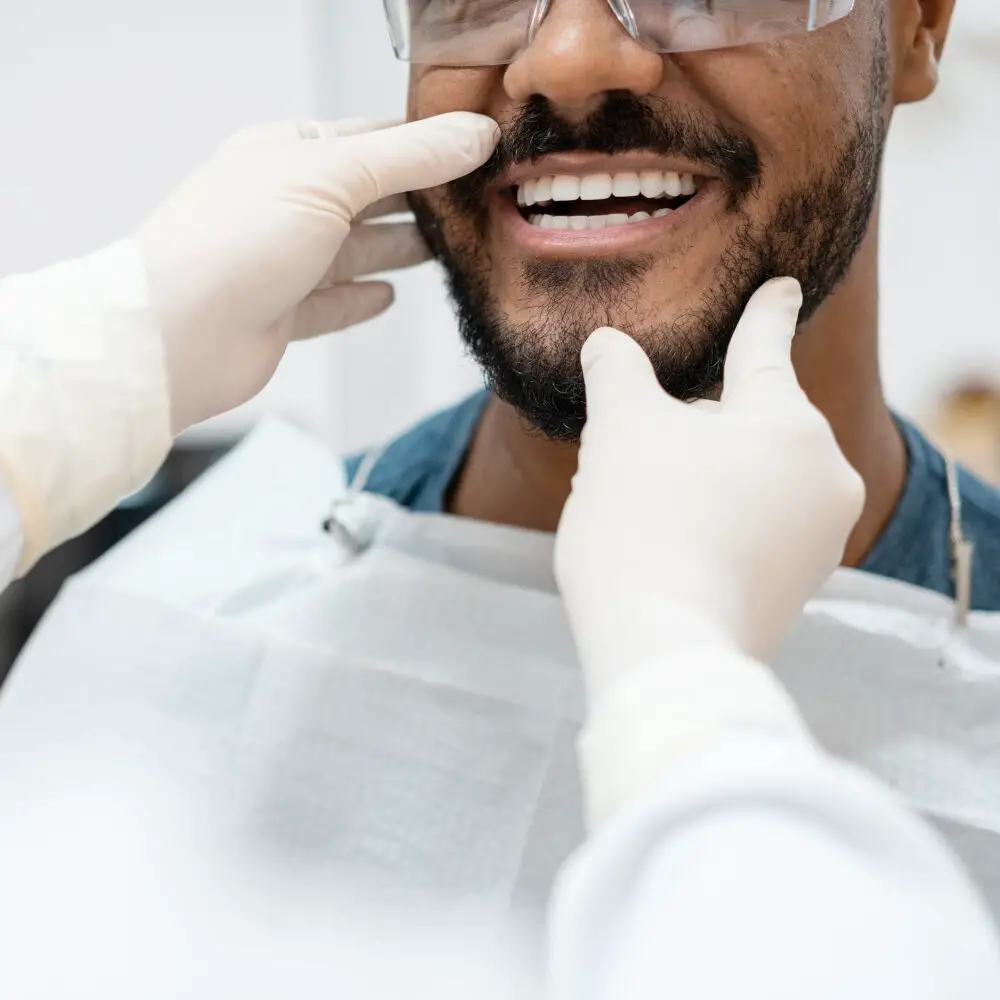
The first few days after wisdom teeth removal can be challenging, but with proper care, you can manage any discomfort and promote healing. Immediately after the procedure, your dentist or oral surgeon will provide you with instructions on how to care for your mouth. You may experience bleeding, swelling, and discomfort, which are normal after the extraction. You can manage these symptoms by applying an ice pack to your cheek for 10-20 minutes at a time and taking pain relievers as prescribed by your dentist. It is also important to rest and avoid any strenuous activity for the first few days to allow your body to heal. In addition to managing your symptoms, you will need to adjust your diet during the first few days after wisdom teeth removal. Your mouth will be sore and tender, so it is best to stick to soft foods that do not require much chewing. Some examples of soft foods include yogurt, mashed potatoes, soup, and scrambled eggs. It is also important to avoid hot and spicy foods, as well as crunchy and sticky foods that can irritate your mouth. As you progress through the healing process, you can gradually introduce more solid foods back into your diet, but be sure to follow your dentist’s instructions and take it slow. With proper care and a little patience, you can recover from wisdom teeth removal and return to your normal routine in no time.
Soft food options are a crucial part of the post-operative diet after wisdom teeth removal. These foods are easy to eat and won’t cause any harm or damage to the delicate healing tissues in the mouth. Some great soft food options include mashed potatoes, pureed soups, smoothies, scrambled eggs, yogurt, oatmeal, and applesauce. It is important to avoid crunchy, chewy, or hard foods during the healing process to ensure proper healing and avoid complications. Additionally, staying hydrated and maintaining a balanced diet can aid in the healing process and help you recover faster. Soft food options are not only beneficial for the healing process but are also delicious and nutritious.
Hydration is crucial for maintaining optimal health and aiding in the recovery process after wisdom teeth removal. It is essential to drink plenty of fluids, such as water, to prevent dehydration and promote healing. Adequate hydration helps to flush out any toxins in the body, improve digestion, and keep the mouth moist to prevent dry socket. Dehydration can lead to complications such as headaches, dizziness, and fatigue, which can prolong the recovery process. Furthermore, drinking fluids can help reduce swelling and discomfort, making it easier to eat and drink after the procedure. Therefore, it is essential to prioritize hydration and drink plenty of fluids to promote a speedy and smooth recovery after wisdom teeth removal.
When it comes to eating after wisdom teeth removal, it is highly recommended to avoid hot and spicy foods. These types of foods can cause irritation and inflammation to the surgical site, leading to discomfort and delayed healing. Additionally, spicy foods can increase blood flow to the area, which can also prolong the healing process. It is best to stick to soft, cool foods that are easy to chew and won’t cause any irritation to the surgical site. Opt for soups, smoothies, and mashed potatoes instead of spicy curries or hot sauces. By avoiding hot and spicy foods, you can ensure a smooth and speedy recovery after your wisdom teeth removal.
Days 37

The recovery process after wisdom teeth removal can be a bit daunting, especially when it comes to eating. On day 37, the good news is that you should be well on your way to a full recovery. By this point, any swelling and discomfort should have subsided, and you should be feeling much more comfortable. However, it’s important to remember that everyone’s recovery process is different, and some people may still experience some lingering discomfort. When it comes to eating on day 37, you should be able to resume your normal diet. However, it’s still important to avoid hard, crunchy, or sticky foods that could irritate the healing area. Instead, opt for softer foods that are easy to chew and swallow, such as scrambled eggs, mashed potatoes, and soup. It’s also important to continue practicing good oral hygiene by brushing and flossing regularly and using a saltwater rinse to promote healing. By following these guidelines, you should be well on your way to a full recovery and enjoying all of your favorite foods once again.
It is crucial to avoid hard or crunchy foods after wisdom teeth removal to prevent any complications and promote healing. Eating these types of foods can damage the surgical site, dislodge the blood clot, and cause bleeding and pain. Additionally, hard foods can put pressure on the jaw, increasing swelling and discomfort. Opting for soft and easy-to-chew foods such as soups, mashed potatoes, and smoothies can provide the necessary nutrients without causing any harm to the healing site. Following a proper diet plan and adhering to the dentist’s instructions can help ensure a smooth and speedy recovery after wisdom teeth removal.
After having wisdom teeth removed, it is crucial to take care of your mouth and slowly ease back into solid foods. To start, stick to soft foods like yogurt, mashed potatoes, and soup. These foods will not require much chewing and will help prevent any discomfort or pain. As the days progress, slowly introduce more solid foods, beginning with foods that are easy to chew, like scrambled eggs and oatmeal. It is essential to avoid hard, crunchy, or sticky foods, as they can damage the surgical site or get stuck in the sockets. Additionally, it is vital to maintain good oral hygiene by gently brushing and rinsing your mouth after each meal to prevent infection and promote healing.
Days 714

Wisdom teeth removal is a common dental procedure that involves the extraction of the third molars located at the back of the mouth. After the surgery, it is important to follow a strict diet to promote healing and prevent complications. On day 714 post-surgery, you may have fully recovered, and your diet can return to normal. However, it is important to consult with your dentist or oral surgeon before resuming your regular diet. During the recovery period, it is recommended to avoid hot and spicy foods, crunchy and hard foods, as well as acidic and carbonated drinks. Instead, opt for soft and easy-to-chew foods such as mashed potatoes, scrambled eggs, and smoothies. As you progress in your recovery, you can gradually introduce more solid foods. On day 714, you may be able to resume eating your favorite foods, but it is important to do so gradually and not overexert your jaw. Remember to chew slowly and carefully to avoid any discomfort or pain.
Gradual introduction of solid foods is critical after wisdom teeth removal. It is recommended that patients start with a soft, liquid diet for the initial 24-48 hours after surgery. This will help the patient to avoid any discomfort or pain when eating. After this period, patients can gradually introduce semi-solid and then solid foods, as long as they are gentle on the teeth and do not require too much chewing. It is important to avoid hard, sticky, or crunchy foods as they can damage the surgical site and delay healing. Proper nutrition and hydration are essential during the recovery process, and patients should aim to consume a balanced diet that includes plenty of vitamins and minerals to support healing.
Avoiding sticky or chewy foods is crucial after wisdom teeth removal as these types of foods can disrupt the healing process and cause complications. Sticky and chewy foods can easily get stuck in the extraction site, leading to irritation, infection, and bleeding. Moreover, chewing these types of foods requires a lot of effort and can cause pain and discomfort, which can delay the healing process. It is recommended to stick to soft, easy-to-chew foods for the first few days after surgery to allow the extraction site to heal properly. Examples of soft foods include soups, mashed potatoes, smoothies, and scrambled eggs. By avoiding sticky or chewy foods, you can ensure a smooth and speedy recovery and reduce the risk of complications.
When it comes to eating after wisdom teeth removal, it’s crucial to chew with care to avoid any pain or discomfort. To achieve this, there are a few tips to keep in mind. First, take small bites and chew slowly to avoid putting too much pressure on the extraction site. Second, try to avoid chewy or sticky foods that might get stuck in the area or require excessive chewing. Third, stick to softer foods like soups, mashed potatoes, and smoothies in the days immediately following the procedure. Finally, be mindful of the temperature of your food, avoiding anything too hot or cold that could irritate the area. By following these tips and being mindful of your chewing technique, you can make the recovery process after wisdom teeth removal as smooth and painless as possible.
After 2 Weeks
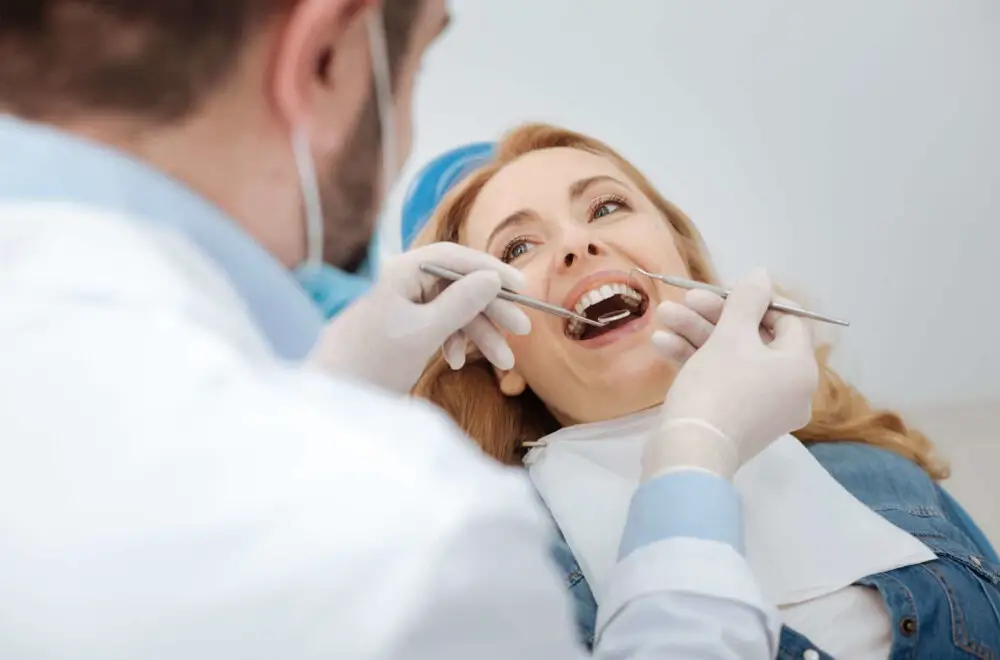
After 2 weeks of wisdom teeth removal, you may start to feel much better than before. The swelling and pain should have subsided, and you can slowly start to resume your normal diet. However, it’s still essential to take care of the healing process and avoid any foods that may irritate or damage the surgical site. Stick to soft and mushy foods, such as mashed potatoes, soups, and smoothies, and avoid anything hard or crunchy that could get stuck in the extraction site. You should also continue to rinse your mouth with saltwater and follow any other post-operative instructions provided by your dentist or oral surgeon. While you may be feeling better after two weeks, it’s important to remember that full healing after wisdom teeth removal can take up to six weeks. It’s still crucial to avoid any activities that could interfere with the healing process, such as smoking or using a straw. You should also continue to monitor the surgical site for any signs of infection or complications. If you experience any pain, swelling, or bleeding, contact your dentist or oral surgeon immediately. By taking proper care of yourself and following all post-operative instructions, you can ensure a smooth and successful recovery after wisdom teeth removal.
After wisdom teeth extraction, resuming a normal diet is a gradual process that requires patience and care. The first few days after the surgery, it is recommended to stick to soft and liquid foods, like soups, smoothies, and mashed potatoes. As the healing progresses, you can slowly start to introduce more solid foods, but it is important to avoid crunchy, sticky, or hard-to-chew foods that can damage the surgical site or cause discomfort. It is also recommended to avoid hot and spicy foods, as they can irritate the area and prolong the healing process. Gradually increasing the variety of foods and textures in your diet while keeping an eye on any discomfort or pain is the key to a successful recovery and getting back to your normal eating habits.
Maintaining good oral hygiene is crucial for overall health and well-being. Brushing and flossing regularly not only prevent bad breath and tooth decay but also reduces the risk of gum disease and other oral infections. After wisdom teeth removal, it becomes even more critical to maintain good oral hygiene as the surgical site is prone to infection. Proper cleaning of the teeth and the surgical area can prevent the accumulation of bacteria and promote faster healing. Neglecting oral hygiene after wisdom teeth removal can result in painful complications, prolong recovery time, and even lead to more severe health issues. Therefore, it is essential to follow the dentist’s instructions and maintain good oral hygiene habits to ensure a smooth and speedy recovery.
After wisdom teeth removal, it is important to be aware of signs of complications that may arise. These could include excessive bleeding, severe pain that is not relieved by pain medication, swollen lymph nodes, fever, difficulty swallowing or breathing, or pus or discharge from the surgical site. If any of these symptoms occur, it is crucial to contact your oral surgeon or dentist immediately for further evaluation and treatment. Furthermore, it is important to follow all post-operative instructions carefully, including avoiding certain foods and activities, to reduce the risk of complications and ensure a smooth recovery process.
Following a proper diet after wisdom teeth removal is crucial for a speedy and healthy recovery. It is important to stick to soft foods that are easy to chew and swallow, as well as avoiding hard, crunchy, or spicy foods that can cause irritation or damage to the surgical site. A diet rich in nutrients and vitamins can promote healing and reduce the risk of infection. It is also important to stay hydrated and avoid using straws or smoking, as these actions can dislodge the blood clot and delay healing. By following a proper diet and taking care of the surgical site, patients can ensure a smooth and comfortable recovery after wisdom teeth removal.
If you have recently undergone wisdom teeth removal surgery, it is important to consult with a dentist or oral surgeon for personalized recommendations on when you can start chewing again. While it is natural to want to resume your regular diet as soon as possible, it is crucial to follow the instructions provided by your healthcare provider to prevent complications and ensure a smooth recovery. A professional can evaluate your individual case and provide guidance on factors such as the extent of the surgery, your overall health, and any medications you may be taking. By seeking personalized advice, you can ensure that you are making the best choices for your oral health and well-being.
Conclusion
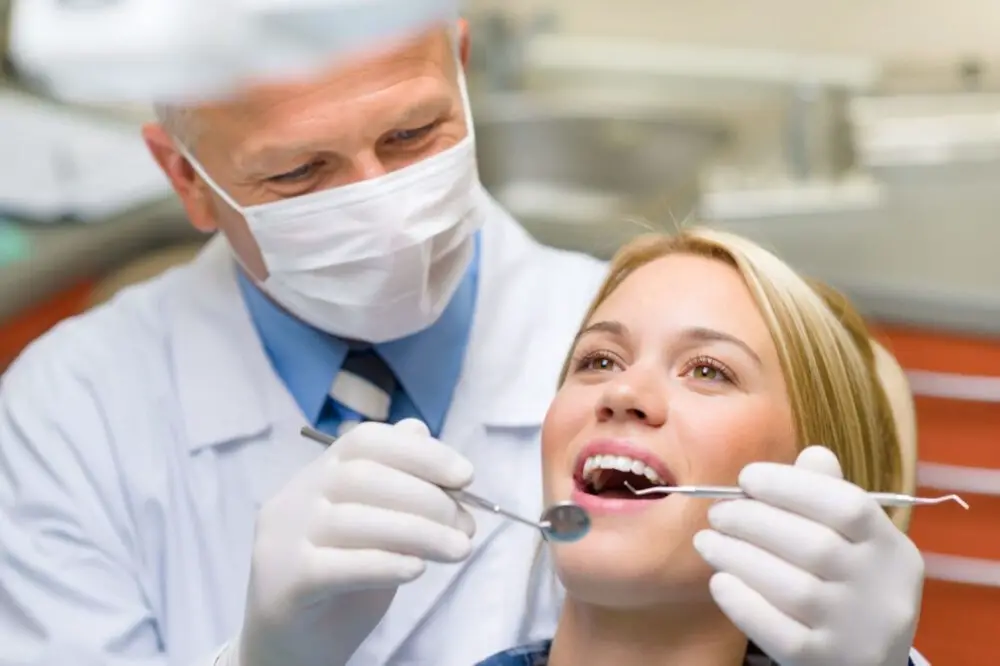
In conclusion, eating after wisdom teeth removal is a delicate and crucial process that requires patience and caution. Following the right steps and guidelines as outlined in this guide will help you recover quickly and avoid any complications. Remember to take it slow, avoid hard and crunchy foods, and maintain good oral hygiene to prevent infection. Don’t hesitate to seek medical attention if you experience any unusual symptoms or have any concerns. With proper care and attention, you can return to your normal diet and enjoy your favorite foods in no time.

